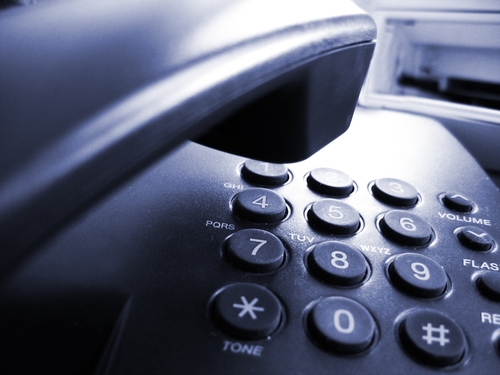Exclusive Only one in four NHS 111 GP referrals is clinically appropriate, a Pulse survey has suggested, with GPs warning that some referrals are ‘harmful’ and an ‘insult to professional integrity’.
GPs said they had known of call handlers citing suspicions of ebola because the patient had visited Barbados, which the call handler thought was in west Africa, ambulances being sent out for a heavy painful period and 80-year old patients being asked if they were pregnant.
It comes ahead of today’s LMCs Conference, which will debate whether GP leaders think the service should be scrapped.
The survey of 592 GPs found that at least 70% of respondents felt that the majority of referrals were inappropriate, with many GPs backing claims by the BMA that patients with colds are being told by call handlers to book a GP appointment immediately.
A mid-point analysis showed that, in all, an average of 73% of referrals were deemed as clinically appropriate by GP respondents.
It comes as the BMA has called for a radical overhaul of the system, urging the Government to carry a serious and urgent analysis of the effect of NHS 111 on the wider health service ‘to determine where it may be working inefficiently and to ensure that it is cost effective’.
GPs have criticised the urgent phone helpline for being operated by non-medically trained call handlers and have accused the computer algorithm – and the call handlers – for being overly cautious and risk-averse.
Mounting concern over the system prompted NHS England’s national director of commissioning operations Dame Barbara Hakin to write to all NHS 111 commissioners this year, calling on them to ensure there is a GP presence, or on-call advice, during peak hours.
GPs have criticised the whole basis of the system, and said that it is removing resources from more appropriate areas.
Dr Chris Kenyon, a GP in Oxford, said: ‘I despise NHS 111 with every fibre of my being. It is the creator of anxiety and totally useless clinical activity which removes resources from what really needs to be done. It is expensive, harmful and a major insult to professional integrity.’
Related stories
‘A call handler though Barbados was in West Africa’
NHS 111 ‘tells out-of-area registered patients to go to A&E’, warns GP
Dr Charlotte Jones: ‘Urgent care needs to be reviewed to ensure it works for patients’
Dr Stephen Tomkinson, GP in Manchester, said had read a transcript of an encounter of one of his patients who had diarrhoea and vomiting during the ebola epidemic.
He said: ‘The 111 algorithm asked “has the patient returned from West Africa recently?”, to which the call handler typed in “Yes – Barbados” and the patient was then advised to attend her local A&E department asap!’
Dr Bharat Nanavati, another GP in Manchester, said that a young woman with heavy painful vaginal bleeding for 30 minutes was told to see an emergency treatment centre within an hour. He added: ‘I have no doubt that the young lady was seeking no more than telephone advice and refused the utterly stupid recommendations of the NHS 111.’
Another GP, Dr Mario Carl Wildenauer, out-of-hours GP in Oxfordshire, said that an over 80 year old male patient, with a deep voice, was asked whether he was pregnant.
However, Dr Joe McGilligan, a GP in Redhill, Surrey, said that the service does provide a ‘safety net’.
He added: ‘There is no perfect solution but this is at least now joined up between 999 and out-of-hours services.’
The BMA said it had heard of examples of minor ailments such as colds and sore thumbs being referred to GPs from call handlers.
It believes that a Government analysis of NHS 111 should ensure that there is a programme in place to boost the number of expertly trained clinicians answering calls from patients.
GPC lead on NHS 111 Dr Charlotte Jones told Pulse: ‘NHS 111 is delivering a significant number of calls. We are aware of the views surrounding 111 and know that improvements need to be made.
‘These include putting in place stronger clinically trained staff to support call handlers and improving algorithm training.’
NHS 111 has been plagued by worries and criticism since it started operating.
When NHS 111 was rolled out in April 2013, NHS England stressed that non-medically trained call handlers would be able to rely on NHS Pathways, which would direct patients to certain services based on a computer algorithm.
But months later Pulse revealed that GPs had lost confidence in the ability of the NHS 111 service to triage patients, with only 8% saying they believe the urgent care phoneline was safe for patients.
Later that year, NHS Direct – the largest provider – pulled out of contracts after concluding that it was unable to provide the services to an adequate level.
Results in full
What percentage of NHS 111 calls referred to you do you perceive as clinically appropriate?
0-20%: 243 (41%)
21%-40%: 174 (29%)
41%-60%: 77 (13%)
61%-80%: 25 (4%)
81%-100%: 11 (2%)
Don’t know: 62 (11%)
The survey launched on 9 February 2015, collating responses using the SurveyMonkey tool. The 37 questions covered a wide range of GP topics, to avoid selection bias on one issue. The survey was advertised to readers via our website and email newsletter, with a prize draw for a Samsung HD TV as an incentive to complete the survey. Some 592 GP partners answered these questions.
Pulse October survey
Take our July 2025 survey to potentially win £1.000 worth of tokens













